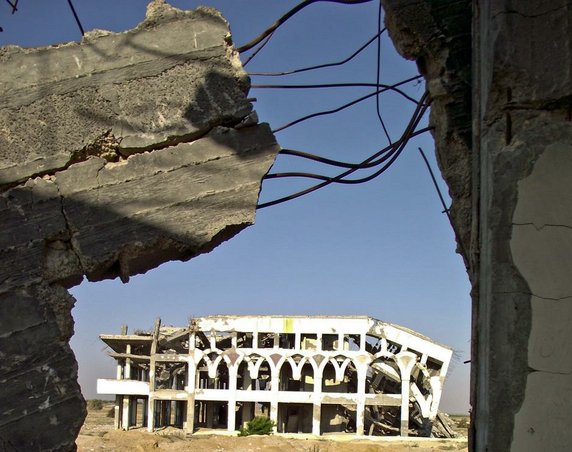By Janet Ekstract
ISTANBUL- Israeli military launched attacks on Hamas armed compounds in Gaza Strip, Wednesday. Israel’s new government headed by new Prime Minister Naftali Bennett said the attacks are in response to incendiary balloons that landed in southern Israel in response to an Israeli nationalist march through East Jerusalem that provoked and angered Palestinians. This is the first violence since an Egyptian-brokered ceasefire after 11 days of cross-border attacks in May.
Israel’s military said the balloons caused fires in southern Israel and in a statement put out by the military, they said they are: “ready for all scenarios, including renewed fighting in the face of continued terrorist acts emanating from Gaza.” Israeli military said the airstrikes targeted facilities used by Hamas militants for meetings to plan attacks while blaming Hamas for any acts of violence out of Gaza. No immediate reports of casualties were available out of the region.
On Tuesday, hundreds of ultranationalists marched in East Jerusalem with some chanting “Death to Arabs” in a provocative show of force. Palestinians consider the march a provocation and Hamas called on Palestinians to “resist” the parade. The march led by Jewish far-right settlers celebrated Israel’s capture of East Jerusalem in 1967 which is a bitter memory for Palestinians. It appeared that most of those participating in the march were young, religious men whose fanatic fervor is stoked by right-wing Jewish groups in Israel.
Israel’s Foreign Minister Yair Lapid condemned the march on Twitter and said those shouting racist slogans are a “disgrace to the Israeli people.” Lapid added: “The fact that there are radicals for whom the Israeli flag represents hatred and racism is abominable and unforgivable.”
Meanwhile, analysts say the parade is a challenge for Israel’s new coalition government whose current prime minister is a hardline Israeli nationalist. The new coalition was sworn in Sunday and includes parties from a wide ranging political pool, including a small Arab party.
Israeli politician and Knesset member, Mansour Abbas, whose Raam party is the first Arab faction to join an Israeli coalition, said the march was “an attempt to set the region on fire for political aims,” with the intention of undermining the new government. He added that the police and public security minister should have canceled the march. Abbas commented: “I call on all sides not to be dragged into an escalation and maintain maximum restraint.” In addition, Defense Minister Benny Gantz met with the military chief of staff, the police commissioner and other senior security officials. Gantz said he: “underscored the need to avoid friction and protect the personal safety of … Jews and Arabs alike,” his office said.
Also, Prime Minister Mohammad Shtayyeh, of the internationally backed Palestinian Authority in the West Bank, called the march an “aggression against our people.” The Jordanian Foreign Ministry issued a statement condemning the march as “unacceptable,” saying it undermined efforts to reduce friction between Israel and the Palestinians. Israeli media reported the military was on heightened alert in the occupied West Bank and along the Gaza frontier. As a precaution, a series of Israel’s Iron Dome rocket-defense system were deployed near the southern town of Netivot, near the Gaza border.




